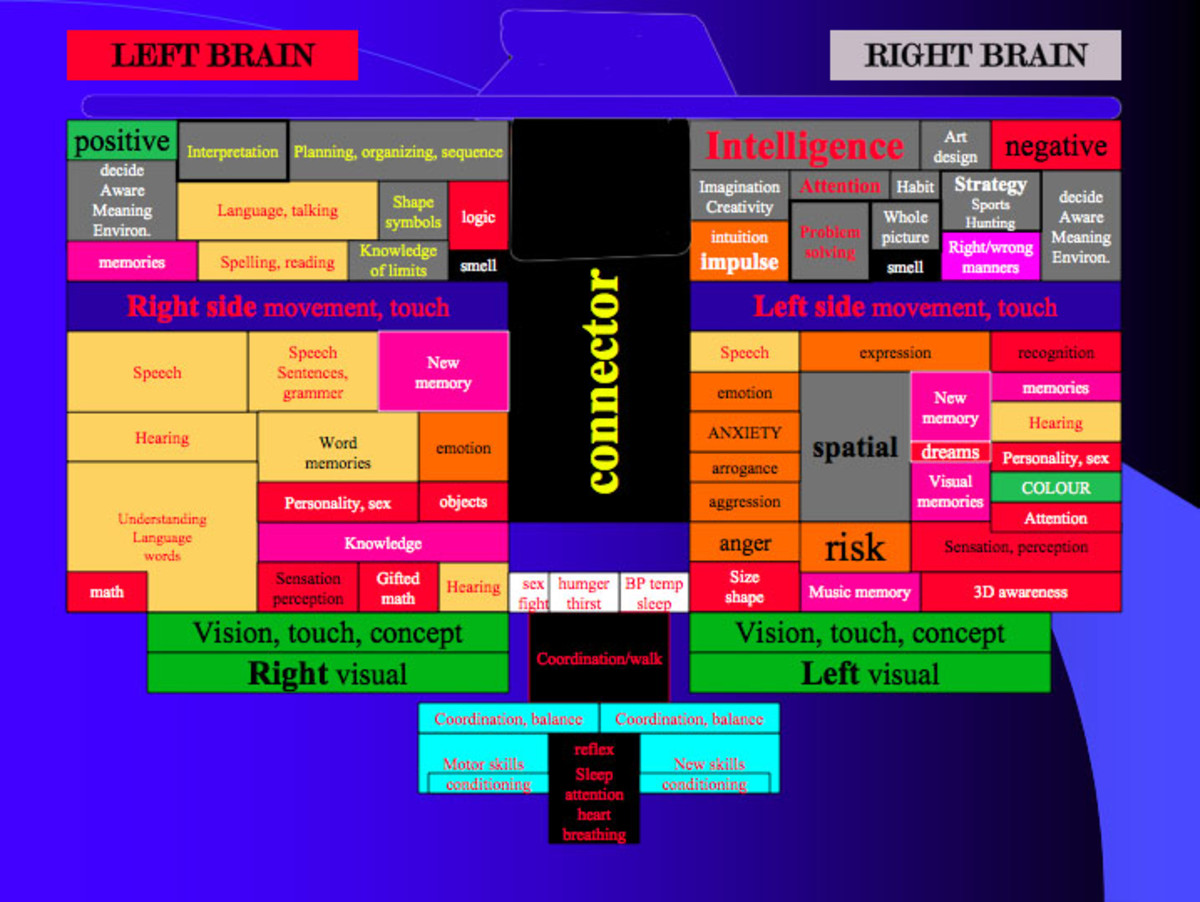Understanding How Psychotherapy - How Talk Therapy Works
Talk Therapy Can Work Very Well

People Everywhere Are Trying to Deal With Emotional Issues
Feeling stuck, having trouble dealing with your emotions, or feeling overwhelmed? It is more common than you may think. According to the NIH (National Institute of Health), more than 25 % of adults in any given year, are dealing with anxiety, depression, coping with struggles,or other emotional disorders, battling the demons of their bad habits, or having relationship problems.
From stress, to substance abuse, from a job loss to the loss of a loved one, from trying to lose weight to giving up smoking, people everywhere are trying to deal with problems that can debilitate and overwhelm them.
Don’t fool yourself. We all have emotional issues. You do, I do, and so does every celebrity, politician, and ordinary person you come across. It is the nature of being human. We are imperfect. Our minds are not perfectly designed and our thinking is flawed. So now you know, we could all benefit from therapy.
A Person is So Much More Than Their Emotional Difficulties
A mental health professional can be a valuable partner to help you work through the issues you are conscious about, and the things you are not conscious about. Good therapy can help you lead a happier, healthier, prosperous, and productive life. You can develop more effective approaches and learn more about why you do the things you do.
An effective therapist will look at the individual they are treating as a whole person, not labeling the person because of their emotional difficulties. In therapy, the first thing to rule out is physical problems, because if there is something wrong organically, especially if it can affect their physical health, psychology can’t save the person’s life.
Physical problems often affect a person emotionally, and that would be something to work on, as long as the client is getting medical care too.
Most people seek out therapy because they are hurting emotionally, having trouble adapting, or dealing with a mental disorder that may be interfering with their daily life activities.
Good Therapy Involves a Good Therapist
A good therapist will look at the individual they are treating as a whole person, not labeling the person because of their emotional difficulties. In therapy, the first thing to rule out is physical problems, because if there is something wrong organically, especially if it can affect their physical health, psychology can’t save the person’s life. Physical problems often affect a person emotionally, and that would be something to work on, as long as the client is getting medical care too.
Most people seek out therapy because they are hurting emotionally, having trouble adapting, or dealing with a mental disorder that may be interfering with their daily life activities.
A good therapist will be compassionate, but not try to rescue the person they are treating so that their own personal feelings do not damage the process of or interfere with the client’s ability to effectively heal. Proper counseling involves helping the client explore the depths of what they are feeling in a safe and supportive environment in order to promote healing. A good therapist understands that with most people (excluding some with deep pathological and psychological disturbances), beneath the self destructive behavior, and other negativity that shows itself, and the layers of self protection, there is a vulnerable person who has needs and seeks greater happiness.
A good therapist will be able to help their client see that change is possible and to empower them with the belief that it is within their own ability to make these changes.
A good therapist needs a willing client. If you are looking to start therapy, you need to be open to self discovery and contribute to your own change. A good therapist will help a person see who they are beyond their own flaws, wounds, defenses, and non productive behavior, so that their own true nature emerges bigger, better, and stronger than ever before.
A good therapist will make the focus on their client’s needs, encourage trust, develop a human connection, and respect for their client, no matter what they are experiencing in order to nurture a therapeutic relationship. A therapist who understands and communicates well with their patient, and is aware of the progress they are making, or not making will be able to help guide them towards a better outcome.
Therapy Helps You Solve and Understand Personal Issues
Sometimes people are afraid of therapy because of the deep feelings that lay dormant and are afraid to be touched. But a good therapist will go deep, only when the client is ready. In order to heal, the deep feelings and core beliefs that drive false thinking, negative feelings, compensation, and counter productive behavior and inner suffering need be uncovered. A person who seeks therapy is usually feeling emotional pain and the wound that is causing this pain is what needs the attention. A good therapist will help heal these wounds.
Therapy is not perfect, just like everything else around us. There may be difficult times in therapy. But the imperfections of counseling will still yield better results and makes trying it all the worthwhile. It is also important to remember that the distress and discomfort you feel when opening these wounds will not continue. You will find relief and gain skills that will enable you to feel better in other situations you will encounter.
There are many kinds of talk therapy that different counselors use. The main idea of therapy is that the therapist should provide a supportive environment that will encourage you to express yourself openly to someone who is neutral, objective and skilled in their ability to help you seek change and identify patterns that hold you back from being your best.
Through therapy you will learn how to solve and understand the problems that initiated you to start therapy in the first place. You will learn new coping skills, and be better able to face challenges that come up in the future.
Psychotherapy and Healing

Ways You May Benefit From Therapy
Psychotherapy can sometimes get a bad reputation, and because of this some people are hesitant to try it out, or fear how ‘normal’, they are.
What inspires most people to voluntarily seek therapy is hitting bottom. Whether their emotions are interfering in their daily activities, or there are major life changes going on, counseling sessions can help people improve their physical and emotional health.
You may benefit from therapy if:
- you are feeling overwhelmed
- you feel a sense of helplessness
- you feel a sense of hopelessness
- you are feeling sad
- you are having trouble focusing and concentrating
- things are interfering with your daily activities of life
- you are worrying excessively
- you are anxious or tense
- you are drinking too much, or taking drugs to cope
- you are having trouble dealing with your anger
- you are being overly aggressive
- you are trying to deal with a loss
- you have had major life changes
- you have panic attacks
- you have phobias you are trying to get over
How to Get the Most from Psychotherapy Sessions
Talk therapy can be extremely effective. In study after study done over many years, it has been proven that talk therapy for people who have anxiety and depression can work just as well as people who take drugs to feel relief.
Drugs work faster, but therapy gives you more tools to handle the things life throws at you. With prescriptions, it can take some tweaking to get the best results. Therapy is hard work, but yields greater self development and higher overall satisfaction.
There are times when medication is needed in addition to therapy. A qualified counselor will understand when that is needed, and often understand about the drugs. They will develop good communication with the doctor who prescribed the drugs, so that effective results that are in the best interest of the patient are achieved.
To get the best outcomes from therapy here are a few tips you can do:
- understand whatever you can about your problems before you seek help so that you can know what specialty you may be looking for in a counselor.
- Interview several mental health professionals before you choose one.
- find out from the therapist what their expertise is and how they can help you
- keep a diary of sorts after the sessions and your emotional state.
- be open minded about the things you will learn about yourself
- use what you learn from your counseling sessions and apply it to your everyday dealings
Be Comfortable With Your Counselor
When you are ready to seek counseling, call the therapist and spend a couple of minutes asking about their approach to dealing with their clients. Find out what their specialty is (for example, family counseling, or panic disorder, grief, substance abuse, etc.)
If after talking to the counselor, and you feel comfortable, you may want to make an appointment.
The first visit is about getting to know each other, and assess the situation so they can procedure with ongoing therapy. Make an assessment yourself about how comfortable you feel with the therapist. If you don’t feel comfortable, contact another therapist. You can ask how the counselor has treated other people in your situation. Use your instinct to ascertain if the treatment you are getting feels right. Does it feel like the therapist understands you. Progress can be slow, in the beginning, so don’t dump the therapist based on your progress, be patient.. Although, you should be learning things from the sessions you are attending.
Therapy varies in how long it lasts. It depends on many factors, but if progress is not being made after some sessions, the patient should have a conversation with the therapist about this, or the therapist should initiate the discussion. Together both should ascertain when the treatments should end.
Feel a Chemistry With Your Therapist
As you progress through psychotherapy, you will learn and adapt to the things you discover. The distress you start with will not continue as you learn self acceptance and coping skills that will help you understand your situations better and develop more positive thoughts. At times, therapy may touch sore points, but this just means that relief is on its way as you begin to understand yourself and your interaction with others.
Overall you will see an improvement in your relationships, in better ways of expressing yourself, and in your ability to be the creator of positive changes that you want to see. You and your therapist are a team and together you will be able to reach the targets you are aiming for.
When you feel a chemistry with the person sitting across from you, and the environment is comfortable, it will feel natural to open up and express yourself.
Studies have proven that positive and effective counseling will result when there is a collaborative and cooperative bond between counselor and client.
If you have the desire to change, and the motivation to make things better for yourself, your life will change. Therapy is a way for you to recognize why you are feeling stuck, what your needs are, and how to get them. As you progress in therapy, things will become clearer about what to focus on. Your therapist will guide you towards a healthy outcome and bring to light the issues that are beneficial
Counseling

Talk Therapy Can Be a Healing Experience
Your therapist will guide you towards a healthy outcome and bring to light the issues that are beneficial process to become more clear about how you want your life to change and what issues might be beneficial towards accomplishing your desires.
At times your feelings may feel overwhelming, your emotions may be raw, and you may be uncomfortable with certain feelings, but in counseling, in a nurturing environment, it will be safe to deal with these issues. These issues will bring to light new realizations, insight, and wisdom that help you grow and change intentionally.
A good therapist will create a strategy that makes change possible and safe, at a pace that does not rush you. Obstacles that once were in your way, are able to be conquered. Fears about finding out more about yourself turn into tools that help you achieve what you have been wanting to do.
Learned skills help you move forward towards more fulfilling relationships, a better career , and a much improved self image. Therapy can be a healing experience and a way to gain a better sense of well being and self satisfaction. If you decide to go to therapy, you will be embarking on a unique path, that takes courage and determination to make good things happen for you.
A good therapist is very important in this process. Knowing what to expect from therapy and from the therapist, and from yourself is part of understanding how talk therapy works.









